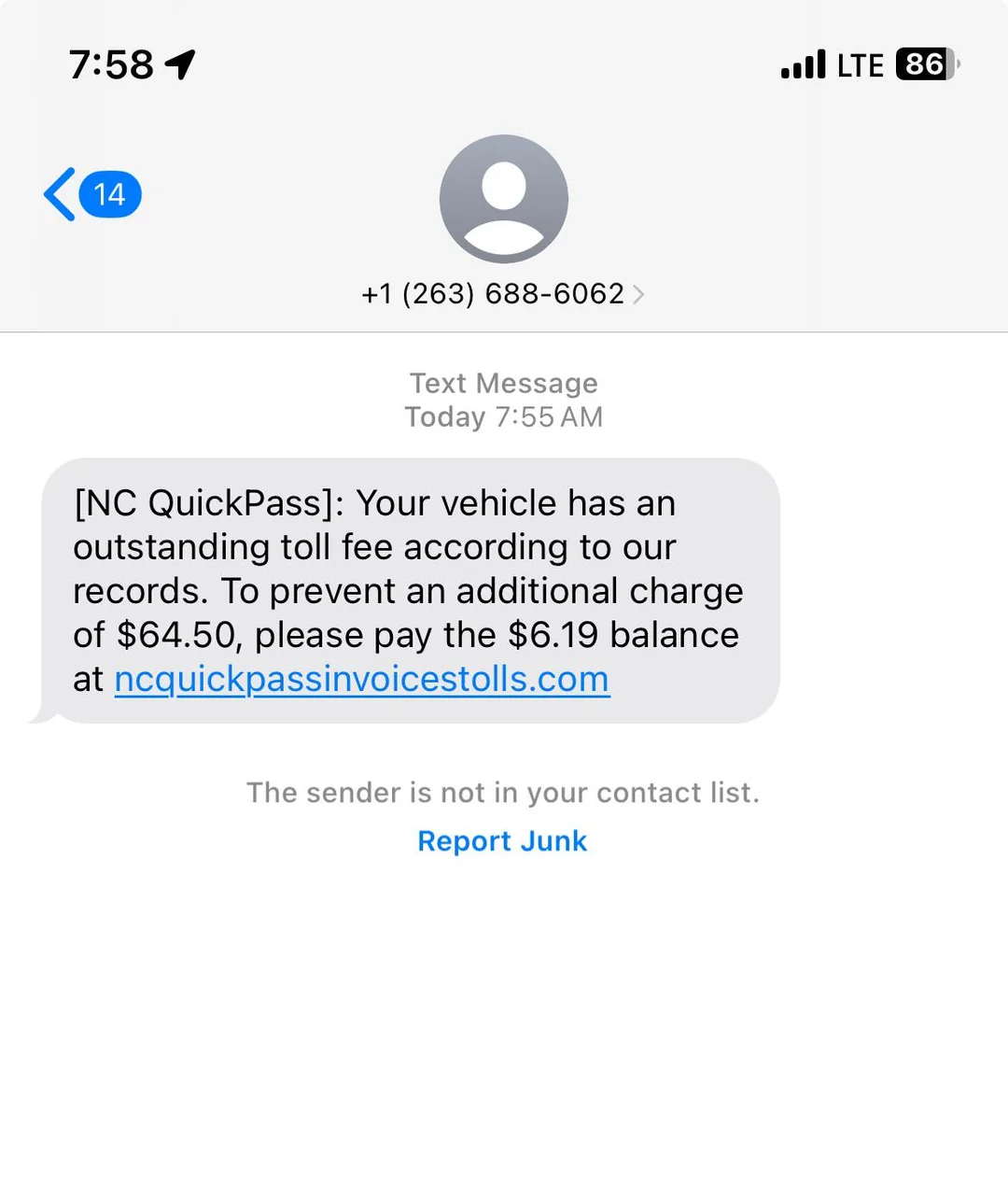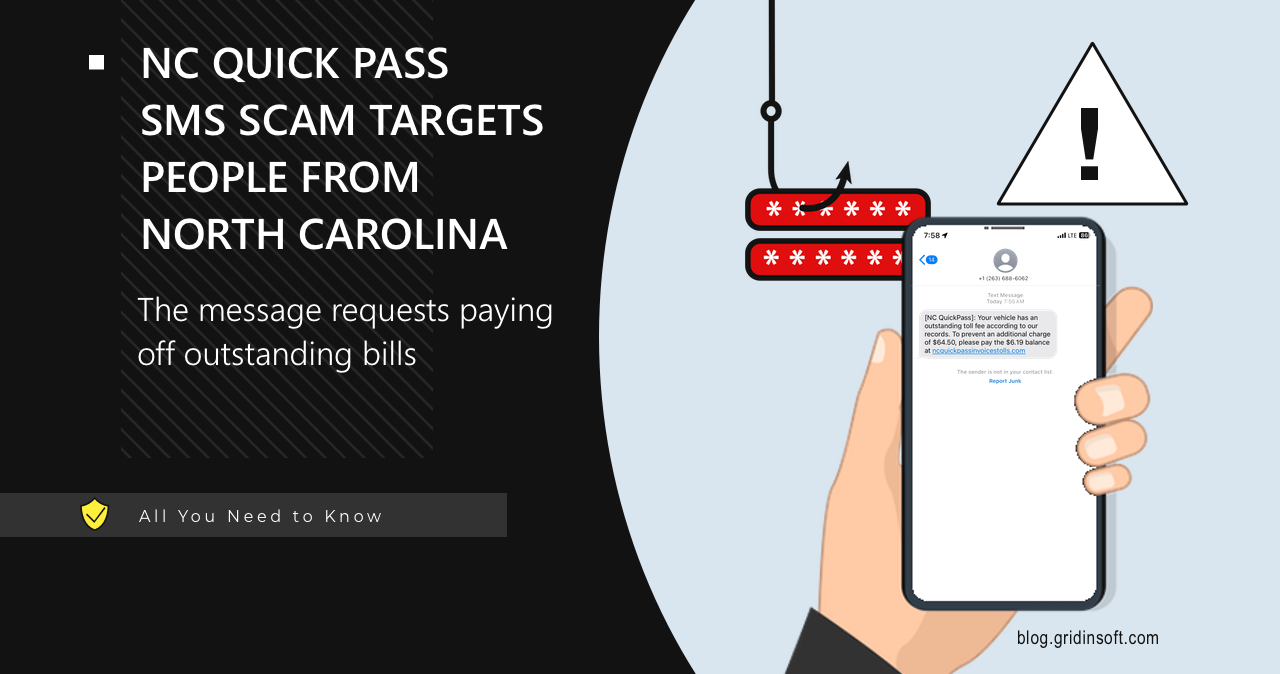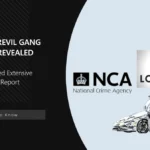NC Quick Pass text messages is a new wave of SMS scam that targets people from North Carolina. It pretends to be a genuine notification from state authorities, and requests paying off outstanding bills through a specified link. All this, however, has absolutely nothing to do with real toll road payments, and aims at collecting sensitive user information.
NC Quick Pass Toll Scam in SMS Messages
The North Carolina Turnpike Authority (NCTA) has reported a rise in calls from individuals claiming to have received text messages about unpaid NC Quick Pass toll bills. The message urged that the bill be paid as soon as possible to avoid additional fees and contained a link to the website hxxps://ncquickpasstollservices[.]com. Although the website mimics the genuine NC Quick Pass one, it is in no way affiliated with the agency. In fact, it was registered only 2 months ago, and is marked as suspicious by a lot of web security engines.

In fact, NC Quick Pass Toll scam is not new and has been circulating from state to state. It also has nothing to do with account or toll road usage. In other words, the victims are selected randomly: you can get this SMS even when you don’t own a car, or even have no driving license. Although this scam might appear to be a trivial attempt to collect small amounts of money, it is unlikely that the scammers are concerned with just the $6-7 toll fees. The true objective of this scam is to steal confidential information gathered through the fake website.
How Does the NC Quick Pass Toll Scam Work?
Let’s back off a bit and get more scientific about these fraudulent messages. By general classification, NC Quick Pass toll scam falls under the designation of smishing, a type of phishing based on SMS messages. The scammers send messages (mostly from Canadian numbers +1 418 214 0042 and +1 263 688 6062) with quite similar content. As original research says, currently, there are only a few variations of NC Quick Pass text message, though there can be more in future.
After visiting the site, the user is asked to enter personal data, ostensibly for authorization and payment of the debt. In the current iteration of the scam, it asks for credit card details (including CVV2), name, surname, date of birth and billing address. This is already quite threatening, as fraudsters can drain the exposed credit card, but it may get worse. Such sites can ask ITIN, SSN or other sensitive documents, exposure of which can lead to much more severe consequences.
The North Carolina Turnpike Authority Response
NCTA has confirmed an increase in fraudulent activity involving NC Quick Pass Toll scam. NC Quick Pass also posted a scam warning prominently on their official website, notifying that they never notify about unpaid tolls via SMS. The agency also gave some recommendations on how users can distinguish fraudulent messages from the real ones.
The first red flag is the sender number. NCTA never sends messages from standard phone numbers. Instead, they use short codes with official names. The second red flag is the link in the message body. The only two real links are ncquickpass.com and secure.ncquickpass.com, the rest being phishing copies. The NCTA also said they don’t send a text message asking you to pay for something. Instead, the notification comes to the email linked to the account.
Users are advised to remain cautious of messages they are not expecting and especially not to click on links. Instead, users can contact the agency directly through the official website. If you receive a payment request via text message and report any suspicious activity on ic3.gov.




